Health
Quitting Coffee: Roasting the coffee bean out of my life

Roasting the coffee bean out of my life.
It was a regular morning when I overreacted. Now usually I’m calm, composed, I’m the guy that lets things slide off my shoulder. But on this day, I became a linguist of profanity. It’s not someone I feel I am in my core or someone I consciously strive to be.
I was triggered, triggered by the way my body reacted to the caffeine; it was time to give up coffee.
As a business owner, I get clients that request meetings with me all the time, and who’s business is dependant on the melding of minds, I’m always meeting clients for the first time at trendy coffee shops. So kicking the coffee cup was a conscious decision. Something of which I thought of for a while, but my lack of focus prevented me from achieving the perk-free focus I wanted.
Now, I love coffee, and I have since my mid-twenties since I purchased an espresso machine, which I used for a few months before stuffing it in my cabinet. You see, it wasn’t just the coffee I loved or the caffeine I craved, but I loved the coffee shop culture. It was hip, cool, filled with busy, successful-looking people.
With every order, my inner voice always questioning, “hmm, I wonder what all these $6.50 coffees are doing to my body, should I worry?” or another question I’d ask myself, “am I an addict? Nah,” I’d shrug inside, as I placed an order for a drip coffee with room.
I convinced myself I had my coffee intake under control because I only consumed it around my business meetings, which were, on average, up to 3 times a day. And the caffeine karma was always clean because I would offer to pick up the bill for clients I would meet. “no-no, it’s ok. I got this!” It was full of warm goodness, positive energy over discussions of our software project together, or next movie production, and ideas seemed to explode.
Things changed. It started to become a problem because my want for coffee was percolating between meetings. A promise I made to myself that I’d only consume coffee during meetings, I figured, if I were going to have a bad habit, it would be while I’m going to be productive.
My days started with a morning coffee with my wife during breakfast, then I’d grab a quick cup to sip while coding a software project, or filming, which I’d have close to me on set in a to-go cup, and times it was at night when visiting with friends or family.
It’s only been three days since I’ve quit, it’s been the three most productive days of my life. That’s why I’ve chosen to write this article. I love to write, but while in my coffee-addicted anxious haze, I always had that false sense that I never had the time. But since I’ve quit the bean, I’ve felt present, focused, and just…happy. And now that I’m #CaffeineSober, I realized what coffee and the caffeine in it did to me. I’m sharing this because, a quick google search, I couldn’t find a decent article I could connect with, so I thought I’d write one.
I’m well aware the drug affects people in different ways, but my coffee consumption made me:
- foggy in my mind
- feel like I never had enough time
- react or overreact to stressful events
- feel like I was carrying the weight of the world’s projects
- feel distant from my wife and kids
- feel like I couldn’t handle my daily stress loads and would push myself to get through them.
- not find the joy in the admin tasks of my business, like invoicing, or writing an article like this.
- not want to go to the gym because I would see a workout as an unachievable entire body, two-hour commitment, where now I see them as more focused, micro workouts.
- feel bloated around my waistline
The list goes on, but I didn’t feel GOOD.
I enjoy my coffee with lots of cream and lots of honey. I suspect there’s a possible combination of the three, caffeine, dairy, and sugar, a triple whammy of things which are affecting my mental health, and something I’m going to be tracking, but that’s an entirely different article. But for now, I’m enjoying a flatter stomach as well.
I’m not basing my article off any science. But there seems to be a common observation of the side effects of coffee. According to WebMD, coffee containing caffeine can cause insomnia, nervousness, and restlessness, stomach upset, nausea and vomiting, increased heart and breathing rate, and other side effects.
And if you hold a celebrity’s opinion as an expert’s, here’s an article. Harry Quits Alcohol, Tea, and Coffee for New Year as Meghan’s Healthy Lifestyle Rubs Off
I’m not arguing about the benefits either. I’m sharing my own experience in hopes that if you’re like me, there’s nothing wrong with finding the solution for your happiness.
Roasting the bean from my life hasn’t taken the joy out of meeting clients at trendy coffee shops — sipping something over discussions about video game development, software development, and movie production projects. I’ve switched to teas, I still pick up the bill, and my days are a bit brighter, and my resting-smile-face just a bit larger.
Tell me how quitting coffee has made you feel?
Raoul Bhatt
https://www.facebook.com/BhattTech/
About me, the Author:
I began my career as a graphic artist when I was still in high school, then followed with eight years of developing software before having the courage to create my own Windows XP based software in the mid 2005s with the goal of licensing it to users around the world. During that time, I had a secret passion for film, and making shortfilms and music videos, of which I wasn’t public about…. Fast forward to 2019. I’ve accumulated nearly a million users of my softwares, and developed over 2000 unique projects of which I’ve spent as the writer for, leading and developing my skills for the larger projects I create today which I post frequently on my channels.
Addictions
City of Toronto asks Trudeau gov’t to decriminalize hard drugs despite policy’s failure in BC
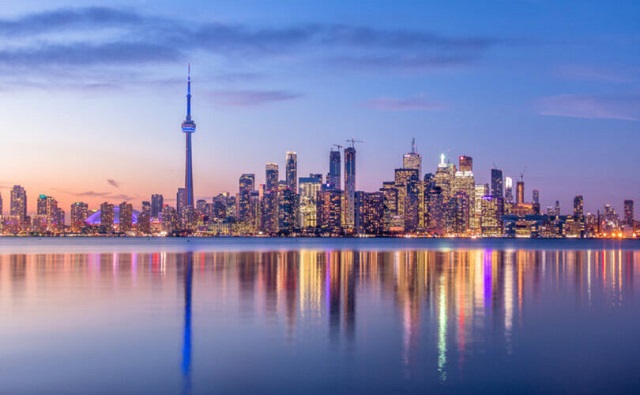
From LifeSiteNews
“Criminalizing the possession of drugs for personal use leads to discrimination and stigma, and contributes to people hiding their drug use from their physicians, friends, family, colleagues, and community”
The City of Toronto is asking Prime Minister Justin Trudeau’s government to decriminalize hard drugs.
In a March letter, Toronto city officials appealed to the Trudeau government to legalize all quantities of crack, cocaine, heroin, meth, and other hard drugs, despite warnings that it will bring increased chaos and violence to the city. Its reasoning is that people look askance at drug abuse and drug abusers, who then attempt to hide their habit.
“The evidence demonstrates that criminalizing the possession of drugs for personal use leads to discrimination and stigma, and contributes to people hiding their drug use from their physicians, friends, family, colleagues, and community,” the document claimed.
The letter, penned by Medical Officer of Health Dr. Eileen de Villa, City Manager Paul Johnson, and Chief of Police Myron Demkiw requested that the Trudeau government decriminalize hard drugs for young people as well as adults. The application places no limit on the quantity of drugs which would be legally obtained.
Toronto is already seeing a rise in crime since the election of Toronto mayor Olivia Chow. Canadians have pointed out that Toronto is dealing with several issues, without adding the decriminalization of hard drugs,
“Trudeau must reject Toronto’s application to allow public use of crack, cocaine, heroin, & other hard drugs,” Conservative Party leader Pierre Poilievre wrote on X, formerly known as Twitter.
“His dangerous policy cannot bring the same chaos, death & destruction to more Canadian cities,” he added.
Trudeau must reject Toronto's application to allow public use of crack, cocaine, heroin, & other hard drugs.
His dangerous policy cannot bring the same chaos, death & destruction to more Canadian cities. pic.twitter.com/hG5h9lsWPq
— Pierre Poilievre (@PierrePoilievre) May 1, 2024
Poilievre’s condemnation was echoed by Ontario Premier Doug Ford who promised, “I will fight this tooth and nail. This is the wrong way to go.”
Poilievre further explained that Canadians have already seen the dystopian effects of the decriminalization of hard drugs in British Columbia, which “has caused chaos in hospitals, playgrounds, parks, and public transport.”
READ: British Columbia should allow addicts to possess even more drugs, federal report suggests
Beginning in early 2023, Trudeau’s federal policy, in effect, decriminalized hard drugs on a trial-run basis in British Columbia.
Under the policy, the federal government began allowing people within the province to possess up to 2.5 grams of hard drugs without criminal penalty, but selling drugs remained a crime.
The province’s drug policy has been widely criticized, especially after it was found that the province broke three different drug-related overdose records in the first month the new law was in effect.
Last week, BC Premier David Eby finally admitted that the province’s ‘safe supply’ program was a failure and called on the Trudeau government to reverse the program. However, Trudeau has yet to respond to the province’s appeal for help.
“Safe supply“ is the term used to refer to government-prescribed drugs that are given to addicts under the assumption that a more controlled batch of narcotics reduces the risk of overdose. Critics of the policy argue that giving addicts drugs only enables their behavior, puts the public at risk, and disincentivizes recovery from addiction. Where “safe supply” has been implemented, it has not reduced the number of overdose deaths. It has sometimes even increased it.
The effects of decriminalizing hard drugs in parts of Canada have been exposed in Aaron Gunn’s recent documentary Canada is Dying, and in the British Telegraph journalist Steven Edginton’s mini-documentary, Canada’s Woke Nightmare: A Warning to the West.
Gunn says he documents the “general societal chaos and explosion of drug use in every major Canadian city.”
“Overdose deaths are up 1,000 percent in the last 10 years,” he said in his film, adding that “[e]very day in Vancouver four people are randomly attacked.”
Even Liberals have begun admitting that Trudeau’s drug program has not helped addicts but only added to their problems.
In April, Liberal MP Dr. Marcus Powlowski testified that violence from drug users has become a problem in Ottawa, especially in areas near the so-called “safe supply” centres which operate within blocks of Parliament Hill.
“A few months ago I was downtown in a bar here in Ottawa, not that I do that very often, but a couple of colleagues I met up with, one was assaulted as he was going to the bar, [and] another one was threatened,” said Powlowski.
“Within a month of that, I was returning down Wellington Street from downtown, the Rideau Centre, and my son who is 15 was coming after me,” he continued. “It was nighttime, and there was someone out in the middle of the street, yelling and screaming, accosting cars.”
RELATED: Liberal MP blasts Trudeau-backed ‘safe supply’ drug programs, linking them to ‘chaos’ in cities
Addictions
British Columbia to re-criminalize hard drug use in public after massive policy failure
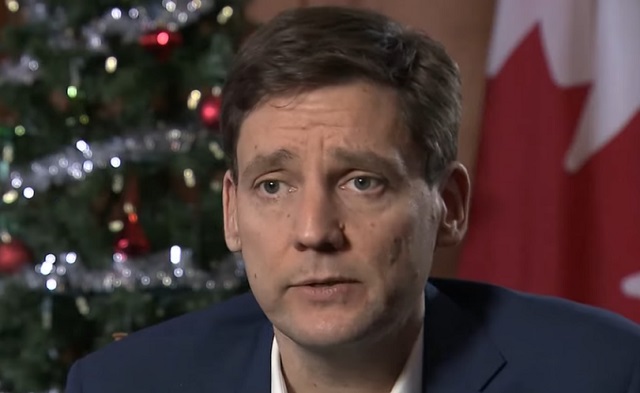
From LifeSiteNews
British Columbia premier David Eby announced that his province plans to re-criminalize hard drug use in public spaces after its decriminalization last year led to widespread social disorder.
British Columbia is asking the Trudeau government to roll back its drug decriminalization program after increased violence and continued overdoses.
On April 26, New Democratic Party (NDP) premier of British Columbia David Eby announced that he is working with Prime Minster Justin Trudeau’s federal government to re-criminalize drug use in public spaces, including inside hospitals, on transit, and in parks. British Columbia, under permission from the Trudeau government, had decriminalized such behavior in 2023.
“Keeping people safe is our highest priority,” Eby explained in a press release. “While we are caring and compassionate for those struggling with addiction, we do not accept street disorder that makes communities feel unsafe.”
“We’re taking action to make sure police have the tools they need to ensure safe and comfortable communities for everyone as we expand treatment options so people can stay alive and get better,” he continued.
Under the new regulations, police would be given the power to prevent drug use in all public places, including hospitals, restaurants, transit, parks and beaches.
However, drug use would remain legal at “a private residence or place where someone is legally sheltering, or at overdose prevention sites and drug checking locations.”
Eby’s concerns over drug use were echoed by Minister of Public Safety and Solicitor General Mike Farnworth who said, “Our communities are facing big challenges. People are dying from deadly street drugs, and we see the issues with public use and disorder on our streets.”
“As we continue to go after the gangs and organized criminals who are making and trafficking toxic drugs, we’re taking action now to make it illegal to use drugs in public spaces, and to expand access to treatment to help people who need it most,” he promised.
Beginning in early 2023, Trudeau’s federal policy, in effect, decriminalized hard drugs on a trial-run basis in British Columbia.
Under the policy, the federal government began allowing people within the province to possess up to 2.5 grams of hard drugs without criminal penalty, but selling drugs remained a crime.
While British Columbia has not yet indicated it plans to re-criminalize possession, its decision to clamp down on public drug use presents a major departure from its previous tactics of continually liberalizing its attitude toward narcotic use.
Since being implemented, the province’s drug policy has been widely criticized, especially after it was found that the province broke three different drug-related overdose records in the first month the new law was in effect.
The effects of decriminalizing hard drugs in various parts of Canada has been exposed in Aaron Gunn’s recent documentary, Canada is Dying, and in U.K. Telegraph journalist Steven Edginton’s mini-documentary, Canada’s Woke Nightmare: A Warning to the West.
Gunn says he documents the “general societal chaos and explosion of drug use in every major Canadian city.”
“Overdose deaths are up 1,000 percent in the last 10 years,” he said in his film, adding that “[e]very day in Vancouver four people are randomly attacked.”
-

 International2 days ago
International2 days agoTrump campaign says he will pardon Jan. 6 prisoners on ‘case-by-case basis’ if re-elected
-
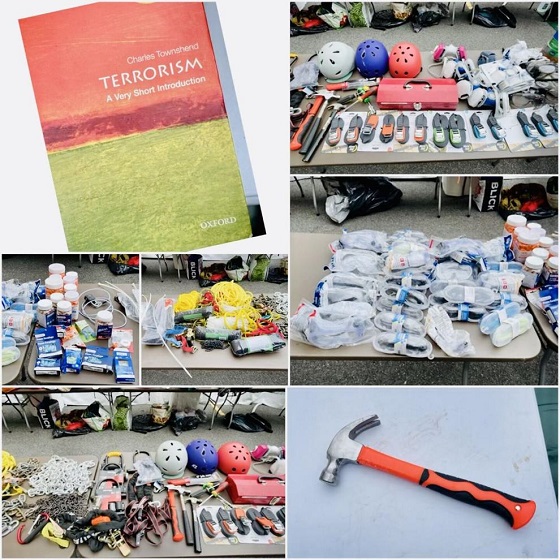
 conflict2 days ago
conflict2 days agoNYPD says protesters had weapons, gas masks and ‘Death to America!’ pamphlets
-
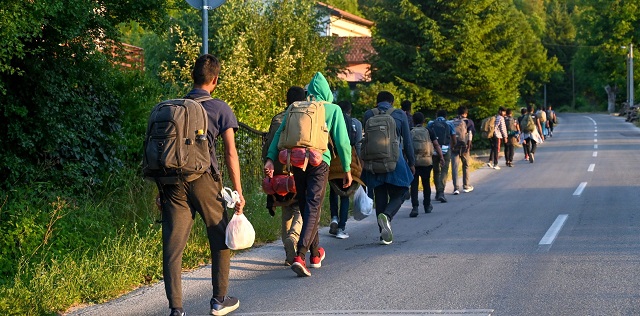
 illegal immigration1 day ago
illegal immigration1 day agoBiden’s DOJ Threatens To Sue Another State For Enforcing Immigration Law
-
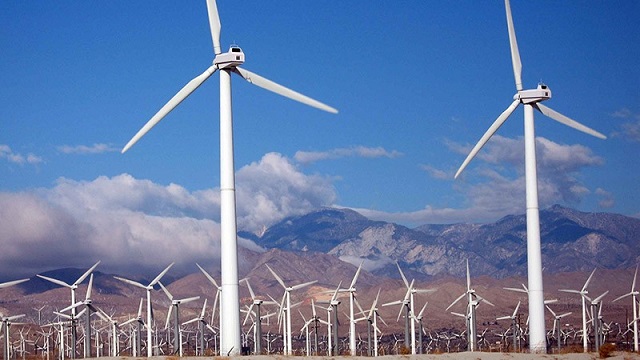
 Economy1 day ago
Economy1 day ago‘Gambling With The Grid’: New Data Highlights Achilles’ Heel Of One Of Biden’s Favorite Green Power Sources
-
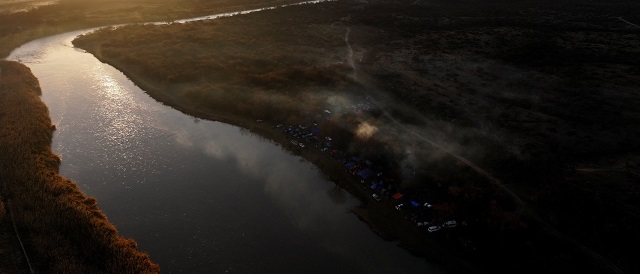
 illegal immigration1 day ago
illegal immigration1 day agoMore Chinese Illegal Migrants Apprehended At Southern Border In Two Days Than In All Of 2021: REPORT
-
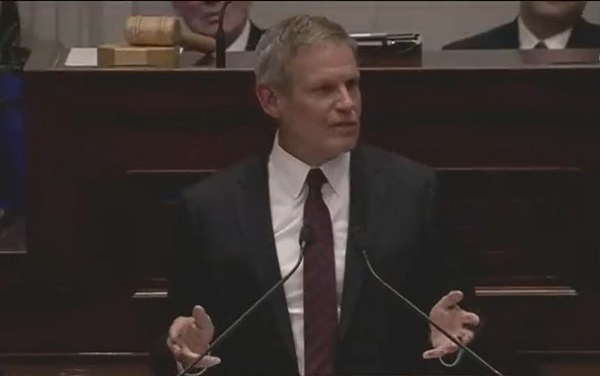
 ESG1 day ago
ESG1 day agoTennessee Taking Lead In Protecting Civil Rights And Free Enterprise—And Stopping Political Debanking
-
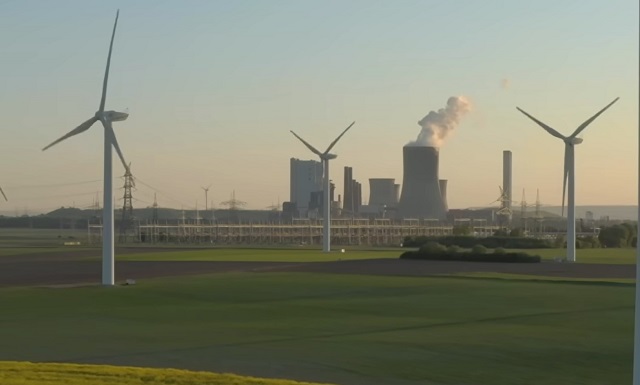
 Energy1 day ago
Energy1 day agoMarket Realities Are Throwing Wrench In Biden’s Green Energy Dreams
-
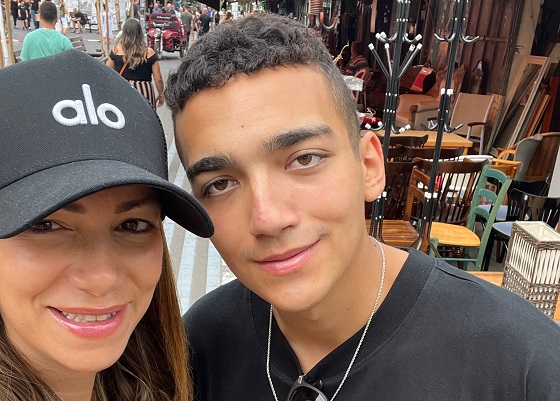
 conflict10 hours ago
conflict10 hours agoOver 200 Days Into War, Family Of American Hostage in Gaza Strives For Deal To Bring Son Home







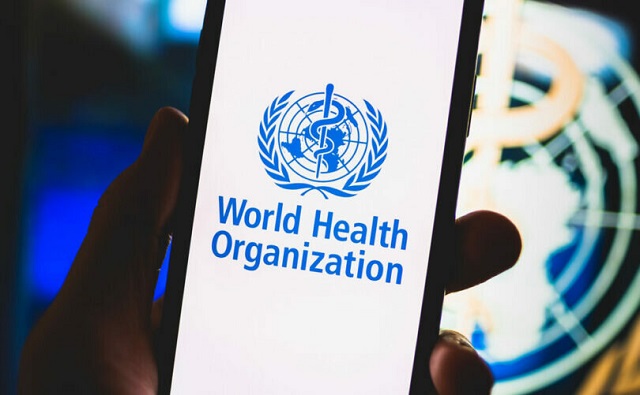


You must be logged in to post a comment Login